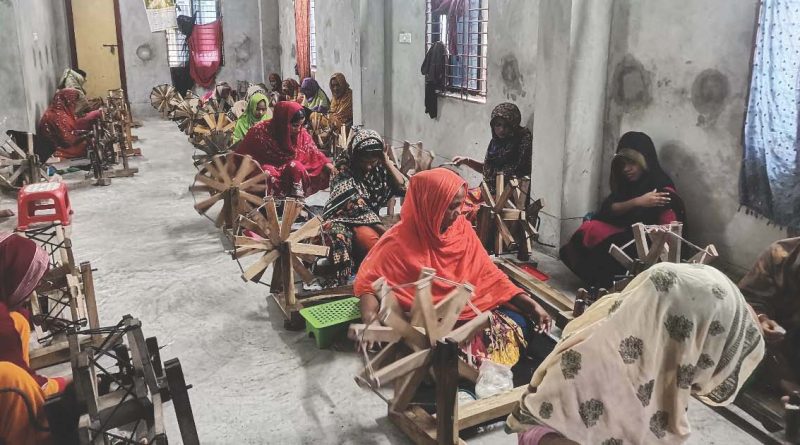Dhaka muslin- Resurrecting the forgotten fabric in Comilla
Once the most valuable fabric on Earth, Dhaka muslin has now become almost extinct.
Centuries on, researchers in Bangladesh have resurrected the forgotten enigmatic fabric after six years of effort – this time, not in Dhaka but in Comilla.
Once an attire of kings and queens, muslin is a light cotton fabric of plain weave. It got its name from the ancient city of Mosul in Iraq where it was first produced.
According to the researchers, at least 30 metric counts of cotton fibre are needed to produce a reeled or handwoven muslin yarn. And the yarn produced in this way is so fine that a muslin saree can pass through a ring.
But, somehow muslin became extinct by the end of the 18th century.
At present, over 200 women are producing muslin yarn in Sonapur and Rampur villages of Comilla’s Chandina and Debidwar upazilas under a project monitored by the Bangladesh Handloom Board (BHB).
The project is titled “Bangladesh’s Golden Tradition Muslin Yarn-making Technology and Muslin Fabrics Recovery Project”.
Project officials supply cotton fibre to these women who then produce muslin yarn in spinning machines used in producing Khadi and send it to Dhaka where fabrics are made from the same yarn.
To produce muslin yarn, BHB first provided training to a total of 40 women and later selected six from them. These six women now supervise the over 200 women who toil hard to produce muslin yarn.
Nazma Akter, one of the supervisors, described how she got involved in muslin yarn production.
“BHB gave us training in muslin production and after working for four years, I along with five other women became supervisors. Then we provided training to over 200 women who are now producing the yarn on their own,” she told UNB.
According to Md. Aiyub Ali, director of the muslin project, a total of 226 women are producing muslin yarn under their supervision.
“I’m happy that muslin is being produced in Comilla. The fabric has huge demand both locally and internationally. We will provide any kind of help needed to enhance its production,” said Md. Kamrul Hasan, deputy commissioner of Comilla.




